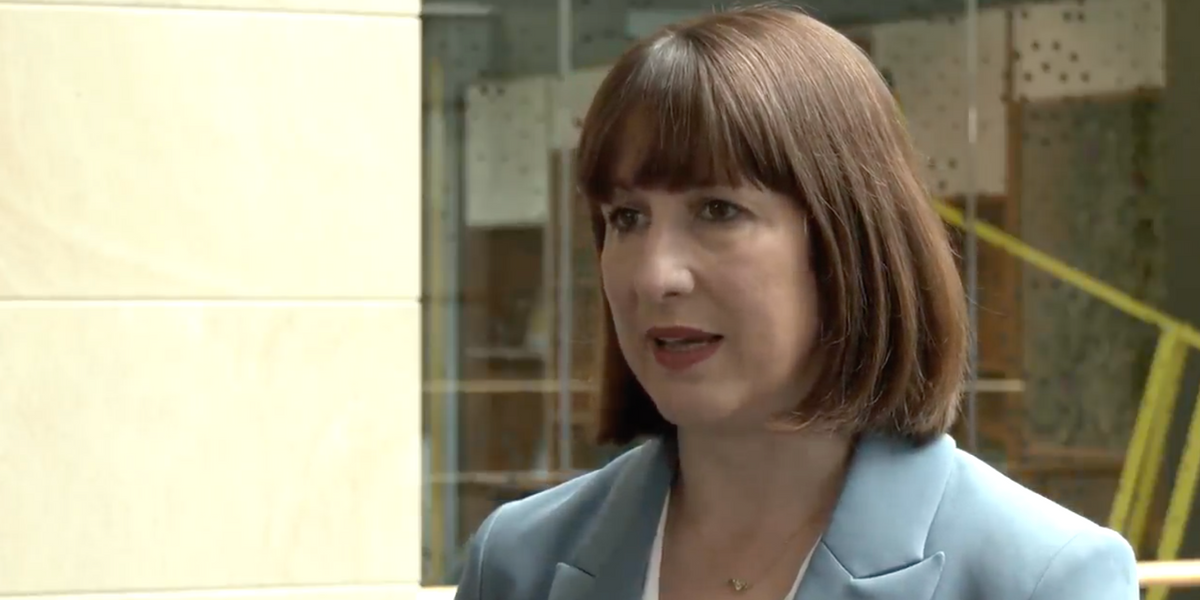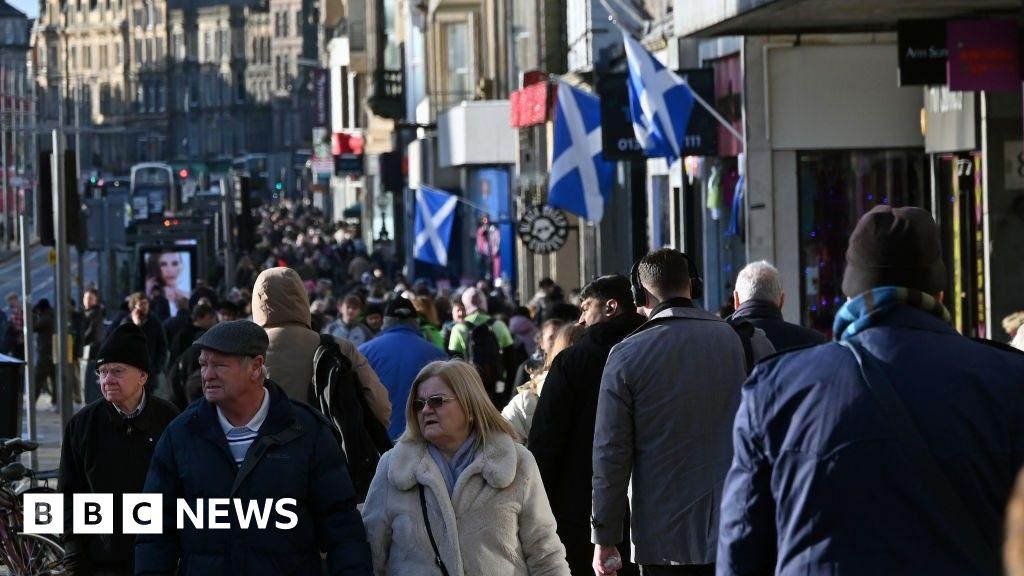World
Rachel Reeves wants Scotland ‘at forefront of revolution’ in emerging industries – ‘Huge potential to be global leader!’

Labour’s would-be Chancellor Rachel Reeves joined Scottish leader Anas Sarwar for a staff Q&A at NatWest’s Edinburgh campus on Tuesday.
Royal Bank of Scotland and NatWest staff took their seats and lined the balconies to listen to the pair promote their vision for bolstering growth in financial services hubs in Edinburgh and London, increasing financial security and unlocking the potential of AI in open banking services.
Reeves – who would be the first female Chancellor of the Exchequer in the 800 years since the sealing of the Magna Carta – launched Labour’s review of the Scottish Financial Services in December and published their findings in February.
In Edinburgh, she told a packed events space she was committed on delivering it.
The Scottish financial and business services sector employs approximately 235,000 people in Scotland and adds more than £14bn to the Scottish economy.
Leading the introductions, Sarwar set out the target areas of growth – selling ‘Brand Scotland’ outside of Scotland “because we already know how great Scotland is”.
Secondly he tackled the skills shortage, saying: “We’re generating around 13,500 tech skill jobs right here in Scotland, but we are only generating around 5,500 tech skills graduates.
“How do we bridge that divide to make sure you have the workforce you need in order to inspire you to to help us make those investments you want to see?”
Lastly, he raised the much-derided plan to “maximise the opportunity of the green energy revolution”, backed by the headquartering of GB Energy in Scotland.
Stepping aside for Rachel Reeves to address the atrium, the Leeds West candidate said: “This election is about turning the page on 14 years of chaos.”
Reeves told the audience she wants Scotland to be at the forefront of the revolution in emerging industries, such as offshore wind, carbon capture and a new wealth fund for investing in low-carbon industries where she recognises “huge potential” to be a global leader.
Turning her attention to the North Sea, Reeves recognises the trepidation that Labour’s commitment to granting no new oil and gas drilling licenses.
She said: “The North Sea has powered the Scottish economy – and powered the UK economy – and the role of oil and gas will continue for many decades to come.“
“But we want to see it beyond many decades, we want to see the [success] of the North Sea extend well into the future.
“That’s why investment with the national wealth fund and GB Energy is so important to get those new [low-carbon] industries going.”
Opening up the floor to RBS and Natwest staff, questions ranged from easing restrictions for musicians playing in Europe and choosing an ‘Era’ for this iteration of Labour – in recognition of Taylor Swift’s Eras tour stopping in Edinburgh this weekend – to plans to reverse austerity and matching skills training to the economy to lift people out of poverty.
Of course, not everyone north of the border agrees with Labour’s approach to the economy.
The SNP has accused Reeves and Labour of not being forthcoming about the true extent of austerity cuts in order to right the economy.
It is estimated by the Institute of Fiscal Studies (IFS) as £18 billion of cuts while the International Monetary Fund (IMF) has suggested it could be as much as £30 billion.
SNP economy spokesperson and candidate for Inverness, Skye and West Ross-Shire, Drew Hendry said: “Rachel Reeves must come clean and admit where the austerity axe will fall.
“People in Scotland want an end to fourteen years of Tory cuts – but the Labour Party is doubling down and will impose at least £18billion of cuts under its plans, which will mean less money for Scotland’s NHS and schools.”
Also out campaigning on Tuesday was Scottish Conservative Leader, Douglas Ross. He was appealing to constituents of Ayrshire to reject the SNP and benefit from more local jobs.
He told Ayrshire residents: “If we beat the SNP, we can get more focus on growing the local economy and creating more good jobs.
“The Ayrshire economy has often been overlooked by the SNP who put more emphasis onScotland’s biggest cities at the expense of everywhere else across the country.
“High streets and small businesses in Scotland need more support, suffering after many years ofSNP neglect.”
Tuesday’s campaign stops come after Scottish party leaders appeared on the first televised debate of the election campaign on STV.
Without manifestos to refer to or fall back on, devolved issues – which won’t be fought over in Scotland during this election – made up a significant part of the debate.
Audiences tuned in on Tuesday night’s head-to-head between Keir Starmer and Rishi Sunak to see whether their on-air debate offers more substance on pledges than platitudes.










